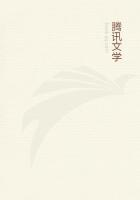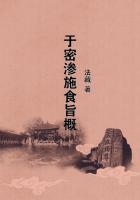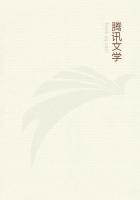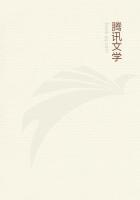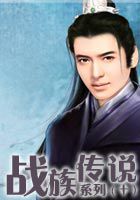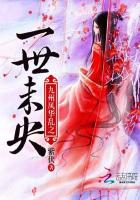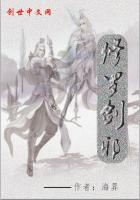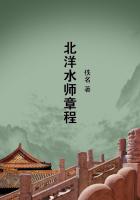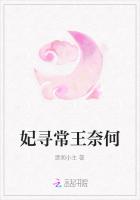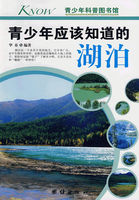These years were for him a continual triumph; everywhere, as he demonstrated on the human body, students crowded his theatre, or hung round him as he walked the streets; professors left their own chairs--their scholars having deserted them already--to go and listen humbly or enviously to the man who could give them what all brave souls throughout half Europe were craving for, and craving in vain--facts. And so, year after year, was realised that scene which stands engraved in the frontispiece of his great book--where, in the little quaint Cinquecento theatre, saucy scholars, reverend doctors, gay gentlemen, and even cowled monks, are crowding the floor, peeping over each other's shoulders, hanging on the balustrades;while in the centre, over his "subject"--which one of those same cowled monks knew but too well--stands young Vesalius, upright, proud, almost defiant, as one who knows himself safe in the impregnable citadel of fact; and in his hand the little blade of steel, destined--because wielded in obedience to the laws of nature, which are the laws of God--to work more benefit for the human race than all the swords which were drawn in those days, or perhaps in any other, at the bidding of most Catholic Emperors and most Christian Kings.
Those were indeed days of triumph for Vesalius; of triumph deserved, because earned by patient and accurate toil in a good cause: but Vesalius, being but a mortal man, may have contracted in those same days a temper of imperiousness and self-conceit, such as he showed afterwards when his pupil Fallopius dared to add fresh discoveries to those of his master. And yet, in spite of all Vesalius knew, how little he knew! How humbling to his pride it would have been had he known then--perhaps he does know now--that he had actually again and again walked, as it were, round and round the true theory of the circulation of the blood, and yet never seen it; that that discovery which, once made, is intelligible, as far as any phenomenon is intelligible, to the merest peasant, was reserved for another century, and for one of those Englishmen on whom Vesalius would have looked as semi-barbarians.
To make a long story short: three years after the publication of his famous book, "De Corporis Humani Fabrica," he left Venice to cure Charles V., at Regensburg, and became one of the great Emperor's physicians.
This was the crisis of Vesalius's life. The medicine with which he had worked the cure was China--Sarsaparilla, as we call it now--brought home from the then newly-discovered banks of the Paraguay and Uruguay, where its beds of tangled vine, they say, tinge the clear waters a dark-brown like that of peat, and convert whole streams into a healthful and pleasant tonic. On the virtues of this China (then supposed to be a root) Vesalius wrote a famous little book, into which he contrived to interweave his opinions on things in general, as good Bishop Berkeley did afterwards into his essay on the virtues of tar-water. Into this book, however, Vesalius introduced--as Bishop Berkeley did not--much, and perhaps too much, about himself; and much, though perhaps not too much, about poor old Galen, and his substitution of an ape's inside for that of a human being. The storm which had been long gathering burst upon him. The old school, trembling for their time-honoured reign, bespattered, with all that pedantry, ignorance, and envy could suggest, the man who dared not only to revolutionise surgery, but to interfere with the privileged mysteries of medicine; and, over and above, to become a greater favourite at the court of the greatest of monarchs. While such as Eustachius, himself an able discoverer, could join in the cry, it is no wonder if a lower soul, like that of Sylvius, led it open-mouthed. He was a mean, covetous, bad man, as George Bachanan well knew; and, according to his nature, he wrote a furious book--"Ad Vesani calumnias depulsandas." The punning change of Vesalius into Vesanus (madman) was but a fair and gentle stroke for a polemic, in days in which those who could not kill their enemies with steel or powder, held themselves justified in doing so, if possible, by vituperation, calumny, and every engine of moral torture. But a far more terrible weapon, and one which made Vesalius rage, and it may be for once in his life tremble, was the charge of impiety and heresy. The Inquisition was a very ugly place. It was very easy to get into it, especially for a Netherlander: but not so easy to get out. Indeed Vesalius must have trembled, when he saw his master, Charles V., himself take fright, and actually call on the theologians of Salamanca to decide whether it was lawful to dissect a human body. The monks, to their honour, used their common sense, and answered Yes. The deed was so plainly useful that it must be lawful likewise. But Vesalius did not feel that he had triumphed. He dreaded, possibly, lest the storm should only have blown over for a time. He fell, possibly, into hasty disgust at the folly of mankind, and despair of arousing them to use their common sense, and acknowledge their true interest and their true benefactors. At all events, he threw into the fire--so it is said--all his unpublished manuscripts, the records of long years of observation, and renounced science thenceforth.
We hear of him after this at Brussels, and at Basle likewise--in which latter city, in the company of physicians, naturalists, and Grecians, he must have breathed awhile a freer air. But he seems to have returned thence to his old master Charles V., and to have finally settled at Madrid as a court surgeon to Philip II., who sent him, but too late, to extract the lance splinters from the eye of the dying Henry II.
He was now married to a lady of rank from Brussels, Anne van Hamme by name; and their daughter married in time Philip II.'s grand falconer, who was doubtless a personage of no small social rank.

